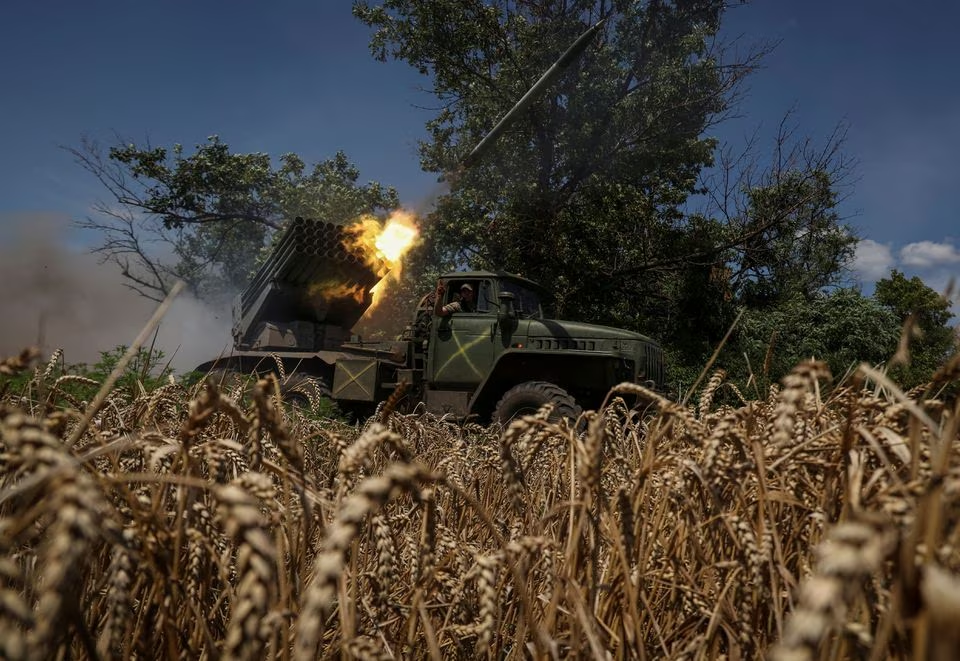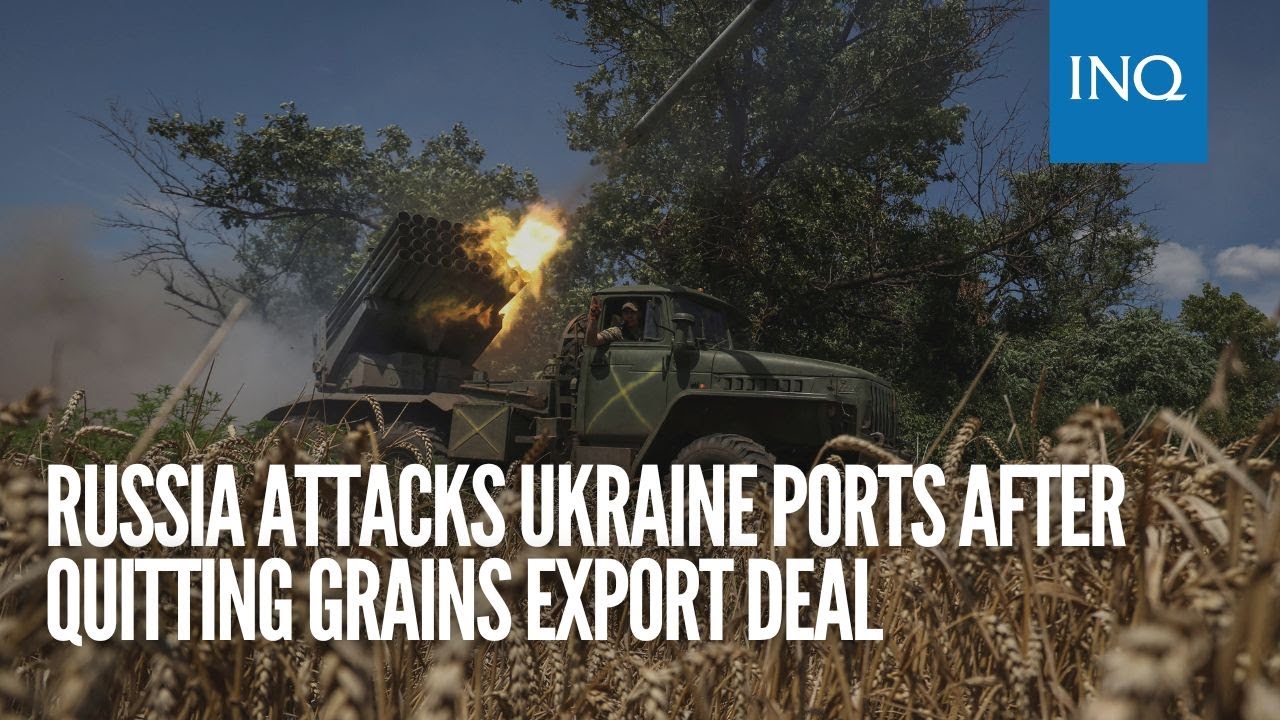Russia Strikes Ukrainian Ports After Withdrawing From Black Sea Grain Deal
Russia strikes Ukrainian ports shortly after pulling out of a U.N.-backed agreement for safe Black Sea grain exports. The strikes targeted fuel storage in Odesa and a seaborne drone plant, in what Russia called "mass revenge strikes" for previous attacks on its road bridge to the occupied Crimean Peninsula.
Author:Camilo WoodReviewer:Elisa MuellerJul 19, 202320.3K Shares551.1K Views

Russia strikes Ukrainian portsshortly after pulling out of a U.N.-backed agreement for safe Black Sea grain exports.
The strikes targeted fuel storage in Odesa and a seaborne drone plant, in what Russia called "mass revenge strikes" for previous attacks on its road bridge to the occupied Crimean Peninsula.
The timing of Russia's withdrawal from the grain agreement raised concerns about potential food shortages and rising prices, particularly in Africa and Asia.

Russia attacks Ukraine ports after quitting grains export deal
United Nations Explores Solutions To Grain And Fertilizer Transport
Discussions are underway at the United Nations to find alternative solutions for transporting Ukrainian and Russian grain and fertilizer to global markets.
The withdrawal from the grain agreement by Russia prompted the need for new arrangements.
The agreement, established last year, aimed to alleviate the global food crisis exacerbated by Russia's invasion of Ukraine and subsequent blockade of Ukrainian ports.
Ukrainian President Volodymyr Zelenskiy expressed his country's dedication to global security and the welfare of Ukrainian farmers.
He emphasized the importance of finding options to fulfill commitments on food supply despite the challenges posed by Russia's actions.
Zelenskiy's statement came as Ukraine continued its struggle to resume shipping without Russian participation, with Moscow insisting on security guarantees.
Russia's Demands And The Future Of The Grain Deal
Russia has expressed the possibility of rejoining the grain agreement but has stipulated that certain demands must be met, including eased rules for its own exports of food and fertilizer.
Western countries view these demands as attempts to leverage food supplies in order to weaken financial sanctions. The ongoing negotiations will determine the fate of the agreement and the future of grain exports from the region.
Explosions caused significant damage to infrastructure and homes in Odesa, one of Ukraine's main ports, following the strikes.
Ukraine's air force reported shooting down six Kalibr missiles and 31 out of 36 drones, while Russia claimed to have foiled a Ukrainian drone strike on Crimea with minimal ground damage.
The conflict has now entered its sixth week, with Russia advancing in the northeast and Ukrainian forces making gains in other areas. However, neither side has achieved a decisive breakthrough.
The Long Road Ahead
Despite the challenges and losses faced by both sides, the conflict shows no signs of abating. General Mark Milley, the chairman of the Joint Chiefs of Staff, acknowledged the ongoing fighting and predicted a protracted and difficult battle.
Ukraine's counteroffensive, backed by significant Western support, has yet to make substantial headway against heavily fortified Russian positions. The situation remains fluid, and the front lines have only marginally shifted since last year.
As the conflict continues, both Ukraine and Russia brace themselves for further hardships and the potential for prolonged fighting in a region grappling with the consequences of war.
Final Thoughts
The situation between Russia and Ukraine remains highly tense and volatile, with conflicting accounts of the ongoing conflict and its impact on global food security.
Russia's decision to strike Ukrainian ports and withdraw from the Black Sea grain agreement has raised concerns about potential hunger and rising food prices, particularly in Africa and Asia.
The United Nations is exploring alternative solutions to ensure the transport of grain and fertilizer to global markets, but the negotiations remain complex.
Both sides have endured heavy losses, and the front lines have seen only incremental changes, indicating that the conflict is far from over.
As the battle continues, the international community watches closely, hoping for a peaceful resolution to the bloodiest combat Europe has seen since World War Two.

Camilo Wood
Author
Camilo Wood has over two decades of experience as a writer and journalist, specializing in finance and economics. With a degree in Economics and a background in financial research and analysis, Camilo brings a wealth of knowledge and expertise to his writing.
Throughout his career, Camilo has contributed to numerous publications, covering a wide range of topics such as global economic trends, investment strategies, and market analysis. His articles are recognized for their insightful analysis and clear explanations, making complex financial concepts accessible to readers.
Camilo's experience includes working in roles related to financial reporting, analysis, and commentary, allowing him to provide readers with accurate and trustworthy information. His dedication to journalistic integrity and commitment to delivering high-quality content make him a trusted voice in the fields of finance and journalism.

Elisa Mueller
Reviewer
Elisa Mueller, a Kansas City native, grew up surrounded by the wonders of books and movies, inspired by her parents' passion for education and film.
She earned bachelor's degrees in English and Journalism from the University of Kansas before moving to New York City, where she spent a decade at Entertainment Weekly, visiting film sets worldwide.
With over 8 years in the entertainment industry, Elisa is a seasoned journalist and media analyst, holding a degree in Journalism from NYU. Her insightful critiques have been featured in prestigious publications, cementing her reputation for accuracy and depth.
Outside of work, she enjoys attending film festivals, painting, writing fiction, and studying numerology.
Latest Articles
Popular Articles